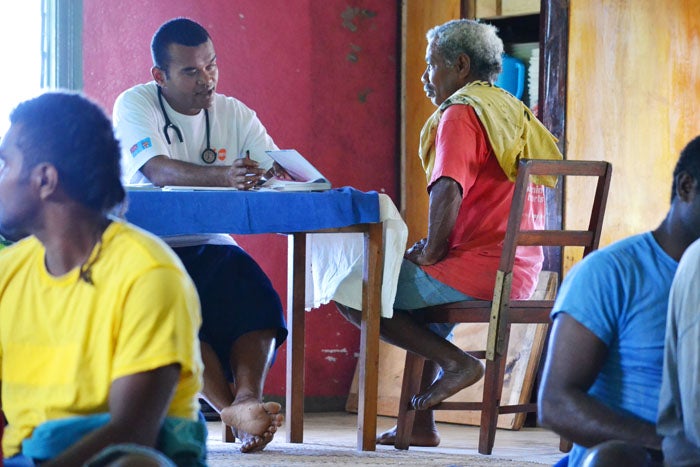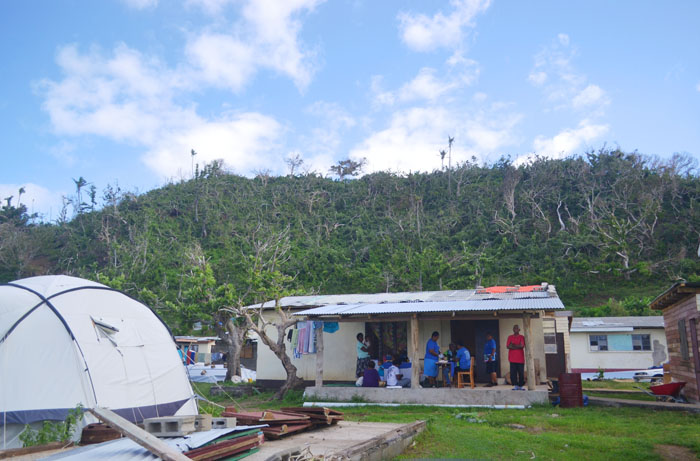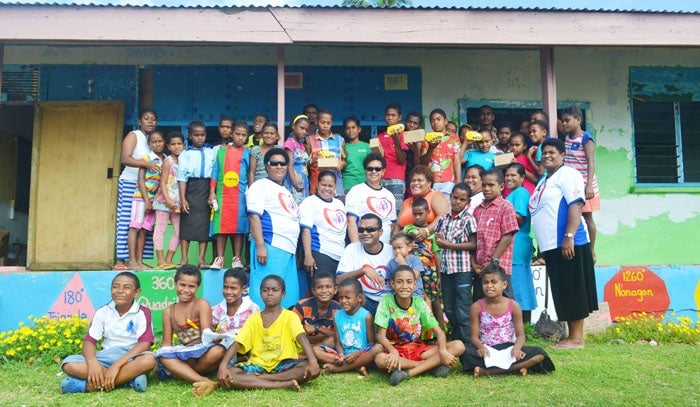Koro son returns as doctor overseeing recovery phase
MALAKAI Ranuve wasn't even five when his curiosity led to an injury which almost blinded him, but healed well enough from herbal medication to ensure he started school at Qalivakabau District School on his island, Koro, which was flattened by the February (2016) Severe Tropical Cyclone Winston.
Ranuve was just entering his third year in lower primary school some three years later when the injured eye had "black stuff" coming out of it. The youngster was admitted to the Colonial War Memorial Hospital, Fiji's main national referral hospital in Suva for a year.
It was this close proximity to medical facility and medical workers which instilled in him the ambition to be a doctor. Three months ago, Ranuve returned to his island home as a relieving doctor at the Koro Health Centre, to allow the incumbent some time off post-Cyclone Winston.
It was an emotional trip for the 2013 graduate of the Fiji School of Medicine who pursued an internship in the main referral hospital in Honiara (Solomon Islands) before returning to his first posting in Levuka, the old capital.

Dr Ranuve became the team leader of the mobile outreach medical team deployed to Koro when he completed his initial mission to relieve the resident doctor.
"When we arrived, it was a shock to see the state the island was in. I just cried all the way through to the health centre and when invited to say a few words during the church service that weekend, I could hardly speak. It was a relief to see my parents and family," Dr Ranuve said.
"To be part of a team which included a dietician, an adolescent health peer educator, a retired midwife who was able to address maternal and sexual and reproductive health issues met a great need on the ground because health was not a priority, people were more worried about food, water and shelter.
"The team also visited schools. The school visits detected five new RHD (rheumatic heart disease) cases and the team recorded a total of 102 tooth extractions.
"Pap smears was popular, 18 had theirs for the first time in their lives and 91 were having it again after 36 months.
"Most of the women who were already on family planning also seized the opportunity to continue when we came to the villages. Having lost everything, there was also not a lot of money going around for women to come to the hospital for family planning services."
United Nations Population Fund, UNFPA, commends partners
The United Nations Population Fund (UNFPA), supported the Government of Fiji's response to the devastation wrought by Severe TC Winston mainly through the Ministry of Health and Medical Services (MoHMS) and the Ministry of Women, Children and Poverty Alleviation (MoWCPA), apart from other partners in civil society and the United Nations family.
UNFPA's immediate response were two-fold; Health facility assessments with the MoHMS's Family Health staff and the distribution of prepositioned dignity kits and emergency delivery kits.
There were a couple of long-term response activities: the establishment of women-friendly spaces through MoWCPA with support from the Fiji Women's Crisis Centre and Empower Pacific; and support for mobile outreach medical teams co-ordinated by the MoHMS Family Health Unit.
The mobile medical teams included retired midwives who were re-engaged by the UNFPA to ensure sexual and reproductive health services and information were part of the national health response. Re-engaged midwives were placed in outreach teams, in women-friendly spaces and health facilities.
UNFPA Pacific subregional office director and representative Dr Laurent Zessler said the UNFPA had been privileged to work with the Government of Fiji through ministries, non-government organisations and sister United Nations agencies for the implementation of the health and gender-related Severe TC Winston response.
"The closure of the last outreach mobile medical team on Koro marked the last team to stop work as part of the national response and for UNFPA, the collaboration with multiple-partners has been a rewarding experience," Dr Zessler said.
"I have also had a chance to be briefed by the midwives who were re-engaged to part of this national health response.
"UNFPA also re-engaged retired midwives for the Cyclone Pam response in Vanuatu and the Fiji experience has shown us that it is an invaluable approach.
"In terms of women-friendly spaces, the reports have been very encouraging as something we were rolling out in Fiji for the first time. UNFPA acknowledges the incredible work done by the Fiji Women's Crisis Centre and Empower Pacific as our partners for this particular activity.
"UNFPA commends the dedication and commitment of our partners in the Cyclone Winston health response in particular the Government of Fiji through the ministries we collaborated with to roll out assistance for communities, especially women and girls."
The United Nations Population Fund, UNFPA, also procured and handed over inter-agency reproductive health supplies to the Government of Fiji through the MoHMS reproductive health kits which was worth around $F230,000.
The reproductive health kits collectively covered the needs of more than 450,000 affected population for a period of three months through health service providers, and through services in maternity units and referral hospitals.
Included in the kits were emergency clean delivery kits which are sanitised delivery packs for clean and safe deliveries in emergency situations that prevent regular autoclaving of medical equipment.



